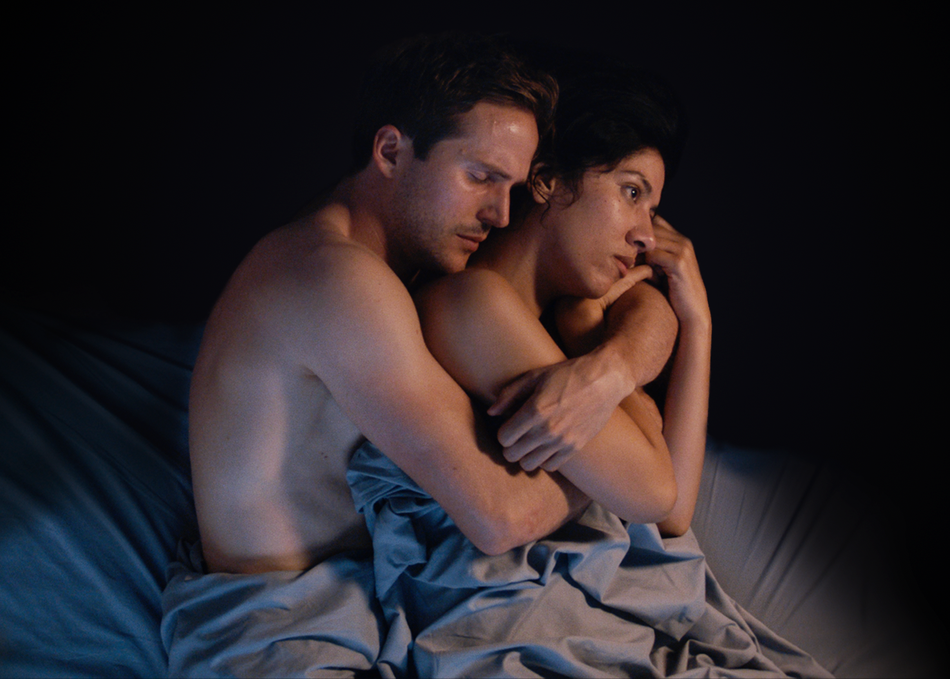By Mark Saldana
My next interview was with writer/director Jessica M. Thompson and actress Stephanie Beatriz of the truly amazing and heartbreaking movie The Light of the Moon, a film that candidly deals with the aftermath of rape and the various ways a rape survivor copes with the assault. The film is superbly written and directed and features a phenomenal performance by Beatriz.
Thompson, an Emmy-nominated Australian filmmaker based this film on the personal experiences of someone near and dear to her. Beatriz, who is best known as Rosa Diaz in the TV comedy Brooklyn Nine-Nine shows a much stronger range with her beautiful turn in this movie. I had the truly wonderful honor and pleasure of speaking with these two lovely and intelligent ladies about the film and the issues of rape culture in our society.
Mark: Jessica, I absolutely loved your film. So real, so genuine. If you feel comfortable elaborating on it, what is your personal connection to the story? What inspired you to make this film?
Jessica: I had always felt that rape was not represented well in mainstream media. I always felt that when I saw a rape in Hollywood or on TV, that it felt almost sexualized. That is not a real representation of rape. Or it was part of a revenge story. One of my friends was assaulted when she was jogging and hearing about what she went through and seeing how that affected her impacted me. I just wanted to tell that story.
Mark: As long as sexual assault happens, victims will always need films like this one to express their feelings and tell their stories. What would you say sets your film apart from other assault stories?
Stephanie: It’s not about what happened. It’s about what happened after. You’re not just a rape survivor, you’re a fully fleshed out human being and you were before and you want to be afterward.
Jessica: I think what also sets her (the character Bonnie) apart is that she’s funny. She has a sense of humor about it which is how I would probably deal with something like that.
Stephanie: That’s how most humans deal with pain. That’s life. You make jokes to get through it.
Mark: Your film offers a Latina’s perspective to sexual assault. Was that always the intention or was that an added element after Stephanie signed on?
Jessica: I was always adamant that it would be about a woman of color. I decided that in the writing process. I also knew the rapist was going to be white. I just didn’t want to feed into any stereotypes. I am an immigrant. My mother is from Malta and I went to Catholic school, so I can identify more with Latino culture than that of African-Americans. That was easier for me to write than say an Asian or African-American. It felt closer to my own personal experience.
Mark: Through both your portrayal, Stephanie, and through the writing and direction, I see a well-developed character who is definitely sympathetic, but also someone who makes questionable decisions and who can be mean towards her boyfriend. Please talk about the process of developing the Bonnie character.
Stephanie: There are so many clues in the script as to who she is–particularly, her dark humor. The biggest part of developing the character was working with Jess and Michael (Stahl-David) through a week of rehearsals in the apartment that Matt and Bonnie live in. We had lots of hours talking about the two of them and the two of us as actors. So, we got to know each other really well and trust each other and build Bonnie and Matt’s relationship off of Stephanie and Michael’s trust. Also, I sadly know quite a few women who are sexual assault survivors and one, in particular, is a really dear friend of mine who I watched struggle to come to terms with what had happened to her.
Mark: In discussing sexual assault, there is always much talk about what women shouldn’t do, such as what they wear, walking alone at night, etc. Sometimes this can shift the blame on the victim. Regarding that side of the issue, what do you hope your film accomplishes?
Jessica: That’s what often happens to women going through this, and that exacerbates rape culture through shaming. I did want the audience to judge her (Bonnie) and judge themselves for judging her.
Stephanie: Just like you don’t murder people, you don’t do it–no matter what. It doesn’t matter what she is wearing or if she’s drunk out of her mind. It doesn’t matter. Consent needs to happen with any sexual act and if it’s not happening, it is rape.
Jessica: That’s the dialogue we want to continue and open up and having a personal story like Bonnie’s definitely helps.
The Light of the Moon is showing at SXSW one more time tomorrow at 3:30 p.m. at the Alamo Drafthouse South Lamar. It is a film I highly recommend.
